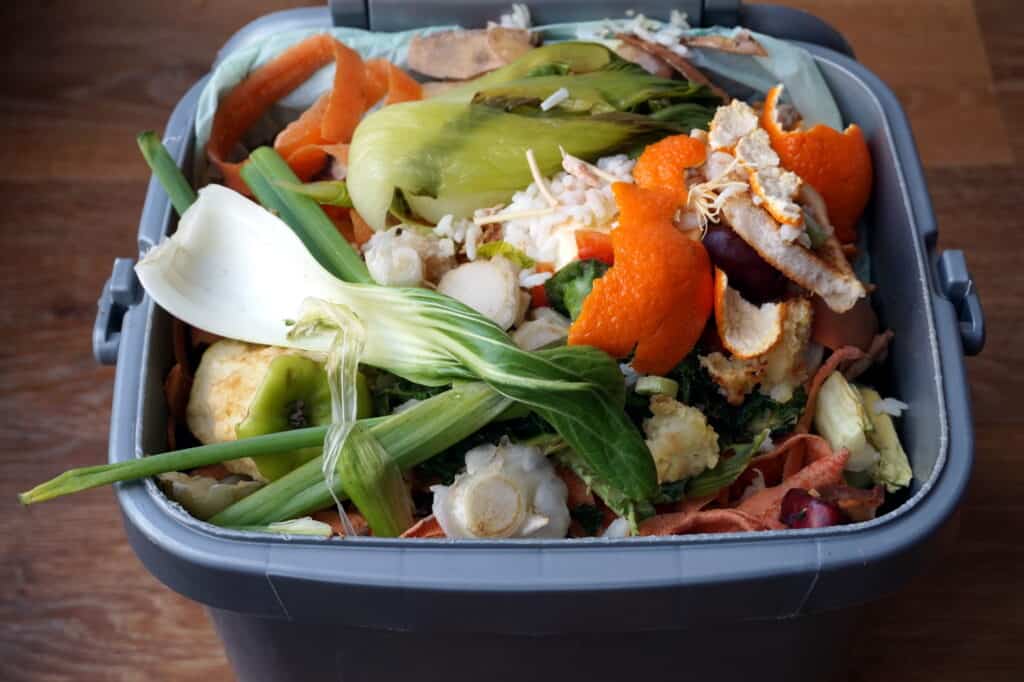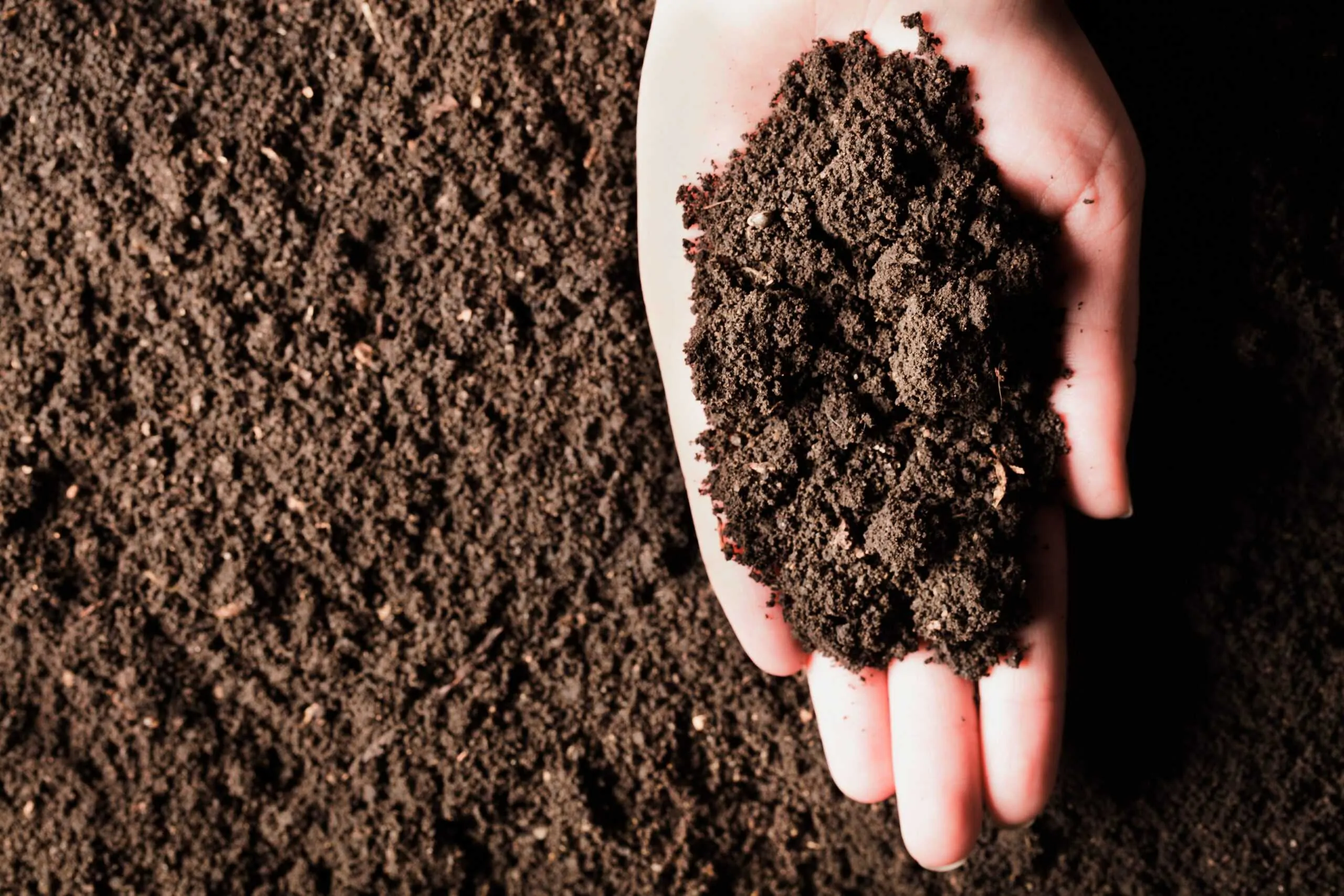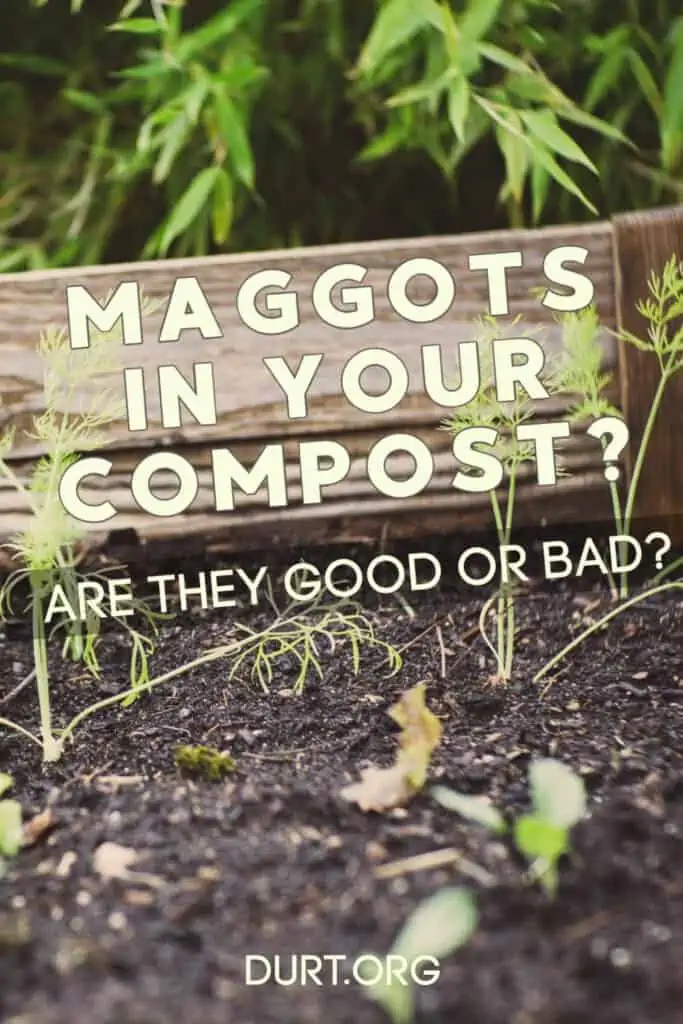As an Amazon Associate I earn from qualifying purchases.
Whether you’re a home gardener or involved with agricultural market-production, your soil needs compost. Sometimes due to the demands of the season, you need it FAST. If that’s your case then don’t worry, you don’t need to wait months to make healthy compost. By starting with the proper materials and managing your pile properly you can make high-quality compost in less than 4 weeks!
Many people report that it takes them six months to a year to make compost and, if you just throw scraps and yard waste together, that’s about right. However, when I make compost (which is always) it’s because I need it to amend my soil NOW (also always because my soil sucks). There’s nothing radically different about the way I do my composting, I just optimize and perfect the methods that everyone already uses!
So let’s talk about how to take your compost pile from scraps to the finished product as quickly as possible.
My Foolproof Method for Fast Compost
- Start with the right balance of materials to achieve about 25 parts carbon to 1 part nitrogen in your compost pile.
- Make sure your materials are the smallest size possible before you start.
- Don’t add any more materials after you have started the composting process.
- Add Microbial inoculants in the form of Compost Tea, Effective Microorganisms, or wild harvested Mountain Microorganisms.
- Add molasses to your pile to boost bacterial populations and speed up the process.
- Make sure the moisture level in your pile is at around Field Capacity.
- While your compost pile is HOT flip it regularly, up to two times a day.
- Wait until your pile is a homogenous, dark, crumbly, and spongy compost!
However, that’s just a general summary our our method for making fast compost. For a more thorough discussion, let’s dive deep!
Getting A Proper Start with the Right Materials
If you want to make compost fast then you are going to need to start with the right materials. By doing this you ensure a balanced diet for the beneficial microbes that fuel the decomposition process. The most important factor for this is providing the proper balance of carbon-rich materials and nitrogen-rich materials.
Carbon-rich materials are tough, woody, and mostly composed of a structural compound known as lignin. These are things like hay, sawdust, wood chips, and certain types of leaves. These are often regarded as the “browns” in compost for their color and woodyness.
Nitrogen-rich materials are those like manure, grass clippings, or food waste. These provide important nutrients for the bacteria that will then help break down the carbon-rich materials. These are often referred to as the “greens” because green vegetation tends be nitrogen rich.

The right balance of these materials is displayed as a ratio, typically around 25 parts carbon to 1 part nitrogen or 25:1 C:N Too much carbon will promote a fungally dominated compost that will take longer to decompose. In contrast, too much nitrogen is detrimental to the final product and results in a net loss of nitrogen.
Below you will find a list of carbon-rich and nitrogen-rich materials with their corresponding ratios. You will have to do a bit of math to make the right calculation. While 25:1 is considered ideal, anywhere between 20:1 and 30:1 will result in good compost.
| Carbon Rich Material | C:N Ratio | Nitrogen Rich Material | C:N Ratio |
| Corn Stalk | 60:1 | Grass Clippings | 17:1 |
| Evergreen Leaves | 50:1 | Kitchen Scraps | 15:1 |
| Hardwood Sawdust | 500:1 | Pig Manure | 15:1 |
| Softwood Sawdust | 200:1 | Chicken Manure | 10:1 |
| Straw | 80:1 | Coffee Grounds | 20:1 |
| Cardboard | 200:1 | Sheep Manure | 15:1 |
Break Down Your Materials Into Small Pieces
Large bulky materials are difficult for microorganisms to consume. This is mainly due to the lack of surface area. As an example, this about how much faster ice melts in a drink if it’s broken into pieces. This is because more of the ice is in contact with the water. Breaking your composting material down into small particle sizes is one of the secrets to making compost fast as it acts the same way as the ice would.
Breaking your materials down can happen in a number of ways. In the kitchen, I always smash my eggshells, chop up peels, etc. In the yard, I often have to resort to machinery to get the job done. Wood Chippers work wonders for large woody materials while weed whackers work great with hay. Lawnmowers can be used to break leaves and other softer materials. If you don’t have access to machinery do the best you can with a shovel, pitchfork, or machete!
Make sure your pile HEATS up
If you’ve never made compost before you might get surprised by how hot it gets. And if you’ve had slow compost in the past, you’ll be surprised how hot a pile should get if you want to make compost fast. An active compost pile should heat up to around 140-160 degrees Fahrenheit, that’s hot enough to cook a meal! If you’ve followed all the procedures mentioned and your pile is still not heating up after 2-3 days, then more likely than not your pile is too high in carbon. You can fix this by adding nitrogen-rich materials like manure to your pile.
Once You Start Your Pile, STOP adding material
While this might seem obvious to some, if you continually add fresh material to your pile it will delay the completion date. It is best to start your pile with everything you need and restrain from adding anything new to the pile.
If you have more material to add, most people opt to have multiple piles. A two to three pile system is common and works well for people who have access to large amounts of compostable material. The only drawback to using multiple piles is that smaller amounts of compost take longer to heat up.
If you don’t much material but still want to make compost fast, consider using a system of a tumbler and pile. Put new material into the tumbler and transfer it to a pile when the previous batch of compost is complete.
Keep Your Moisture Levels Right
Compost piles that are too wet or too dry won’t decompose as efficiently. The perfect moisture level for decomposition is known as “field capacity”. Field capacity suggests that your material is well hydrated but not oversaturated. This provides microorganisms the adequate levels of moisture and oxygen to undergo decomposition.
You can easily test this by taking a handful of your in-progress compost and squeezing it as hard as you can. Ideally, you will see just a couple of drops of water being released from the material.
If your pile is too dry then there will be no drops of water after squeezing the material. In this case, give your pile adequate watering when you flip the pile. Wait a couple of hours until it properly absorbs the moisture and test again.
If you have a lot of water dripping from your material then you know it’s over-saturated. The best thing you can do to dry out your pile is to routinely flip it, make sure it’s sitting on well-draining soil, and protect it from rain. Alternatively, you can add dry material to the pile but this may delay the completion time.
Inoculating Your Pile with Beneficial Microbes
Beneficial Microbes is a blanket term for a wide array of organisms that naturally occur in the environment and prove beneficial in a variety of ways. They help with the decomposition process, remove unpleasant odors, and improve your plant’s health in a variety of ways. These are generally different types of yeasts, lactobacillus bacteria, actinomycetes, and other microscopic creatures.
You can inoculate your compost pile in a variety of ways. The simplest is by adding high quality finished compost into your pile. For added effect, you can make or purchase compost tea and spray it on your pile.
You can also purchase Effective Microorganisms, which are a patented selection of microbes proven to speed up decomposition. Alternatively, you can collect your own using traditional methods from Asia to make “Mountain Microorganisms”. Other alternatives include using fresh whey (a byproduct of cheese making) or the juice from fermented foods like sauerkraut.
While we don’t typically recommend store-bought “Compost Accelerators” you can easily make your own as home that’s super effective. Check out our recipe for it here.
Flipping Your Pile for Faster Results
Flipping your pile has numerous positive effects for faster composting, including accelerating the process. It is recommended to flip the pile at least once every other day, but the more you flip it the better. You can flip your pile up to two times a day or whenever the center is excessively hot. You know it’s too hot when the material in the center is uncomfortable to touch for longer than a couple of seconds. Near the end of the composting process, your pile will cool down and no longer need as much flipping.
When flipping the pile aim to move all the outer material first so it ends up in the center of the new pile. This is because most of the decomposition is occurring in the center, so moving the outer material to the center makes sure it all evenly decomposes.
7 Benefits of Flipping Your Compost Pile
- Increases Aeration
- Helps Mechanically Break Down the Materials
- Ensures all materials break down evenly
- Cools Down Excessively Hot Piles
- Promotes Beneficial Microorganisms
- Prevents unfavorable anaerobic conditions
- Greatly Speeds Up Decompositions
Using Molasses to Accelerate Decomposition
Molasses is easy to eat mineral-rich food for microorganisms. When you add it to your pile it results in faster compost as it allows microbial populations to explode in large numbers and greatly speed up the decomposition. It’s easy to find, relatively cheap, and makes a great amendment if you want to speed up decomposition.
Adding about 1/4 cup of molasses for every 2-3 sq ft of compost is more than plenty to speed up your pile. Make sure to mix it in well or dilute it in water for better dispersal, just make sure to stay within the right levels of moisture.
How do you know your compost is finished?
At the beginning of your compost process, you will have bulky materials which are constantly at ambient temperature. As the process begins and the microbially activity increases, the pile will start to heat up significantly. This should happen within 1-3 days of starting your pile. You will know that you are reaching towards the end of the process as the pile starts to cool down, suggesting the microbial activity is slowing down. If done properly this could happen as soon as a week into the process.
You will know your compost is finished when it turned into a homogenous mixture of dark spongy material. It will no longer heat up and it will stay at ambient temperature. None of the original materials should be recognizable as at this point it’s all been broken down into simpler organic molecules. With proper care and management, you should be able to achieve this in four weeks or less! Happy (fast) composting!




